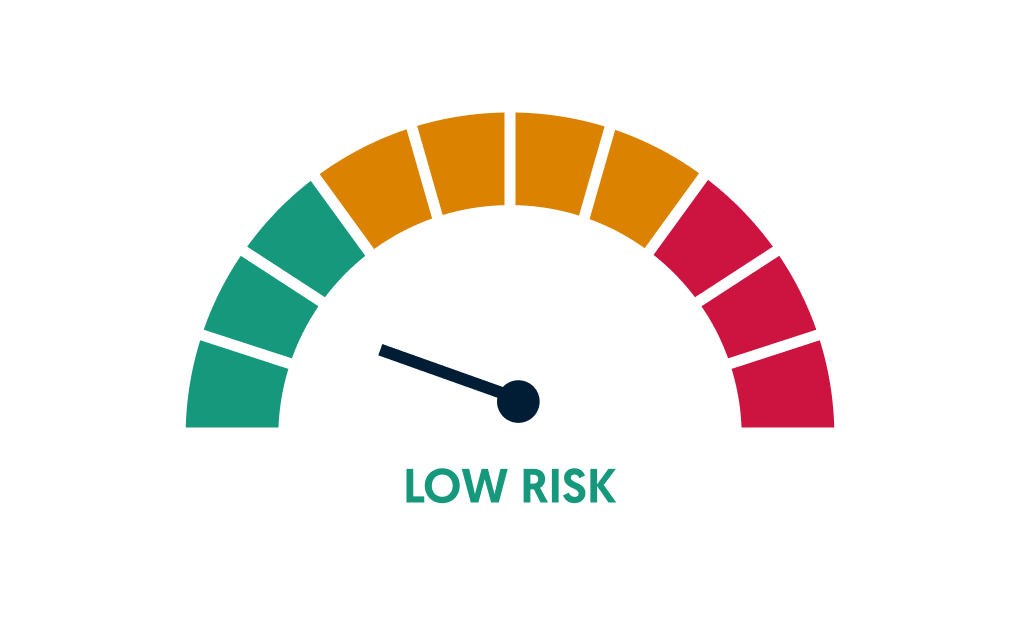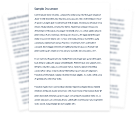Confidentiality Agreement (Mutual)
This Confidentiality Agreement (Mutual) allows you and another party to share confidential information while legally forbidding the other party from disclosing that information to any other person or entity.
4.5 (146 reviews)
Last updated February 24, 2025
Under 5 minutes
Suitable for Australia
Written by Edwin Montoya Zorrilla
Reviewed by Damin Murdock
Document Overview
A Confidentiality Agreement (Mutual), is a two-way legal document that you can use to disclose confidential information to a receiving party, while legally forbidding either party from disclosing that information to any third parties, be they a person or entity.
It is important to note that this document is only enforceable if it is signed by you and the other party before information is shared. If you are seeking to protect the information of one party, see our Confidentiality Agreement (One-Way).
The Legal Risk Score of a Confidentiality Agreement (Mutual) Template
Our legal team have marked this document as low risk considering:
- There is a risk that confidential information may be inadvertently disclosed by one party, potentially leading to financial or reputational damage.
- Information might be wrongly classified as non-confidential, either due to misunderstanding or oversight, which could lead to unauthorized use or disclosure.
- The agreement specifies a jurisdiction that will govern the agreement and handle disputes, which might not be favorable or convenient for all parties involved, potentially leading to complications in legal proceedings.

Confidentiality Agreement (Mutual) Checklist
Complete your free Confidentiality Agreement (Mutual) with our checklist
Verify Signature Compliance
Ensure that all parties have signed the agreement in accordance with section 127 of the Corporations Act 2001, as outlined under the execution clauses.
Deliver Original Copies
Each party must deliver an executed original copy of the agreement to the other party within 10 business days after delivering a facsimile or electronic counterpart, as specified in the document.
Maintain Confidentiality and Security Measures
Take all reasonable precautions to maintain the confidentiality of the information and prevent unauthorized disclosure or use, as required by the operative provisions of the agreement.
Monitor and Notify
Regularly monitor the handling of confidential information and immediately notify the other party of any unauthorized disclosure or use, as stipulated in the agreement.
A confidentiality agreement can also be referred to as an:
- NDA;
- Non-Disclosure Agreement;
- Confidential Disclosure Agreement (CDA);
- Proprietary Information Agreement (PIA);
- Secrecy Agreement (SA);
- Confidentiality Contract; and
- Gag Order.
Use this Confidentiality Agreement if:
- You would like to (or need to) disclose confidential information.
- You would like to stop confidential information (such as trade secrets) from falling into the wrong hands.
- You would like to protect your confidential information.
- You would like to have legal options available if your confidential information is compromised or disclosed.
What does this Confidentiality Agreement cover?
- A description of the confidential information;
- Confidential rights and obligations of the parties;
- Protection of sensitive information;
- Return of confidential information at the end of the agreement;
- Obligations regarding proper use of the information; and
- Circumstances where disclosure is permitted.
What happens if a Confidentiality Agreement is breached?
When the time of disclosure is during the time period specified before the termination of this agreement. If both parties have expressed consent prior through signature, the agreement is a binding legal contract that outlines a confidential relationship between the vendor/suppliers and the other party. Therefore, when a breach or violation occurs, you are able to claim rights in dispute against the violating disclosing party. These rights are outlined in the provisions of this agreement - some specifications include; an injunction, damage for loss, court order. The most commonly found right is if an employee breaches an agreement with a business/business owner then the employee can be immediately terminated.
What type of information can be covered in a Confidentiality Agreement?
Subject matter in the entire agreement is broad and can be customised to your needs. Common information that can be covered is inclusive of but not exhaustive to; patents, copyrights, financial information, customer lists, trade secrets. You can use this Lawpath template as a base and then customise the document accordingly.
How long is a Confidentiality Agreement effective for?
It is not an essential element of a confidentiality agreement to impose a specific time-frame. It is recommended that your document should not contain a time-frame and an obligation of confidentiality remain until the information is no longer classified as confidential and enters the public domain. In cases where the parties decide to agree on a time-limit, to ensure enforceability, the deadline must not go over what is reasonably necessary to protect the legitimate interests of your business.
Will my Confidentiality Agreement be enforceable overseas?
Like many contracts, this document is only enforceable in the country or state specified in the agreement. Similarly, this document is governed by the law/s in the respective country or state it is executed in. If you intend to take legal action to enforce this agreement or seek remedies for its breach, you will need to do so in the State or Territory Court the document was executed in.
Should I ask my employees and interns to sign a Confidentiality Agreement?
One of the most common forms of confidentiality agreements exists between an employer and employee. Confidentiality agreements are beneficial in the context of employment because they allow for a free-flow of confidential information within the workplace to maximise business productivity, while at the same time prohibiting employees from using or disclosing confidential information. Employment agreements also often include a binding confidentiality clause.
Who else should sign a Confidentiality Agreement?
Clients
When engaging with clients or potential clients, a business or entity may have the clients sign a confidentiality agreement when sensitive information is disclosed.
Vendors
A business that relies on third-party vendors who may have access their confidential information should get the vendor to sign a confidentiality agreement during their business relationship to ensure their information is protected.
Contractors
Having an independent contractor sign a confidentiality agreement where they may have access to confidential information during their employment, would prevent the contractor from acting on the information and protect the contracting entity.
Investors
Investors may be asked to sign a confidentiality agreement when commercially sensitive information is shared between the parties to ensure the information does not go public, and the information is protected.
What happens if the terms of a Confidentiality Agreement are broken?
A confidentiality agreement sets out the rights of a party in the event of a breach by the other party. These rights may include:
- Obtaining an injunction in the event of an anticipatory breach (to prevent information from being released).
- Monetary compensation (damages) where a breach has already occurred.
Other documents you may need:
- Full Time Employment Agreement (Long Form)
- Confidentiality Policy
- Heads of Agreement
- Intellectual Property Agreement
Further information
- Can I issue a Non-Disclosure Agreement (NDA) for Past Information?
- What Happens If There Is A Privacy Breach Of NDA Information?
- Top 5 Enforceability Issues For NDAs
- What Is the Difference Between Privacy and Confidentiality in Australia?
- 10 Things To Know About Non-Disclosure Agreements
- Should You Use A Mutual or One-Way NDA?
View Sample Confidentiality Agreement (Mutual)
It's never been so easy
Sign-up to a free Lawpath account
Get started and we'll take care of you. It's that easy.
Browse our 500+ legal documents
Browse our 500+ legal documents to find the perfect match to cover your business needs. We've got Compliance, Employment, Service agreements and more.
Collaborate with e-Sign and Sharing
Having access to your legal documents has never been easier. You can request e-signature, share the document and download for an efficient collaboration.
Create unlimited legal documents and eSignatures for only $39/month.
Upgrade to a Lawpath legal plan to boost your new business.


Here's what people say about Lawpath's Confidentiality Agreement (Mutual)
Reviews are managed by BazaarVoice and comply with the BazaarVoice Authenticity Policy. Reviews are independently verified by BazaarVoice and detail our customers' real experiences.
0 reviews
Most Recent
Highest to Lowest Rating
Lowest to Highest Rating

